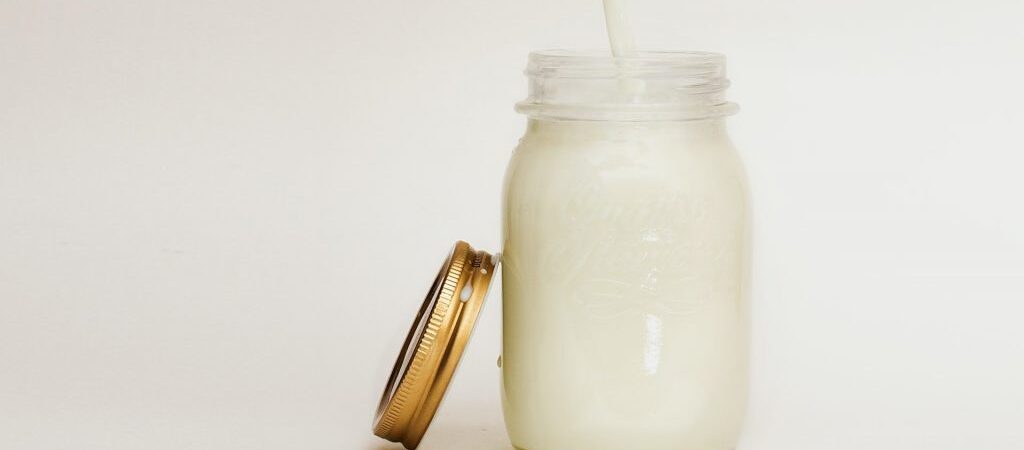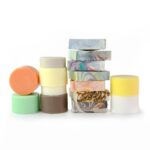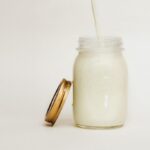We’re not vegan but we’re certainly conscious of the negative effects of dairy farming. We’re trying to find ways to reduce our dairy consumption while still enjoying lots of foods and drinks we love such as coffee and cereal.
I recently decided to switch to non-dairy milk but found myself stuck in one of those sustainability dilemmas – what was better, imported nut milk in a non-recyclable tetra-pak or milk produced locally that we get delivered in a glass bottle?
My solution was to start making my own alternative milk. And I very quickly got caught in a spiral of research asking questions like – which alternative milk is the most sustainable? Which milk substitute is cheapest to make yourself? How long would they keep for and how easy was it to make? Feeling a little overwhelmed I decided to give them all a go and share my results here.
For each type of alternative milk, I’ve written a separate recipe post about how to make it but here I have gathered all the info so you can make a choice about which type of alternative milk is best for you.

Almond Milk
Price per litre: $4.70
Ease to Make: Easy
Keeps for: 4-5 days
Almonds are readily available in all of the plastic-free bulk bins where we live and almond milk is tasty and nutritious. It’s a pretty cost-effective option and works really well for homemade coffees. The process leaves us with almond pulp which can also be used in baking.
The negatives for us are that almonds aren’t commercially grown in New Zealand so most of the ones available are imported from the USA. This obviously adds quite a few food miles to our almond milk compared to dairy produced down the road.
The sustainability of almond milk has also come into question lately due to the amount of water required to produce grow the almonds. Most of the world’s almond supplies are grown in California which has suffered from droughts meaning it’s not actually very sustainable. Making almond milk at home isn’t going to have a huge impact but it’s definitely something to keep in mind when choosing the best alternative to milk.
Have a look at our detailed article on how to make almond milk at home!

Oat Milk
Price per litre: 0.30c
Ease to make: Easy
Keeps for: 3-4 days
Oat milk has been deemed the most sustainable of non-dairy milks as oats grow relatively easily in a variety of countries. It’s very easy for us to buy bulk NZ grown oats here and it’s one of the cheapest alternative milks to make at home.
Oat milk is very similar to making almond milk however I didn’t like the flavour as much. The lower fat content meant it didn’t froth very well for coffees but it still tasted fine and worked well on cereal. I would happily make this regularly as it’s so cheap and easy but would want something more flavoursome and rich if I was drinking it on its own.
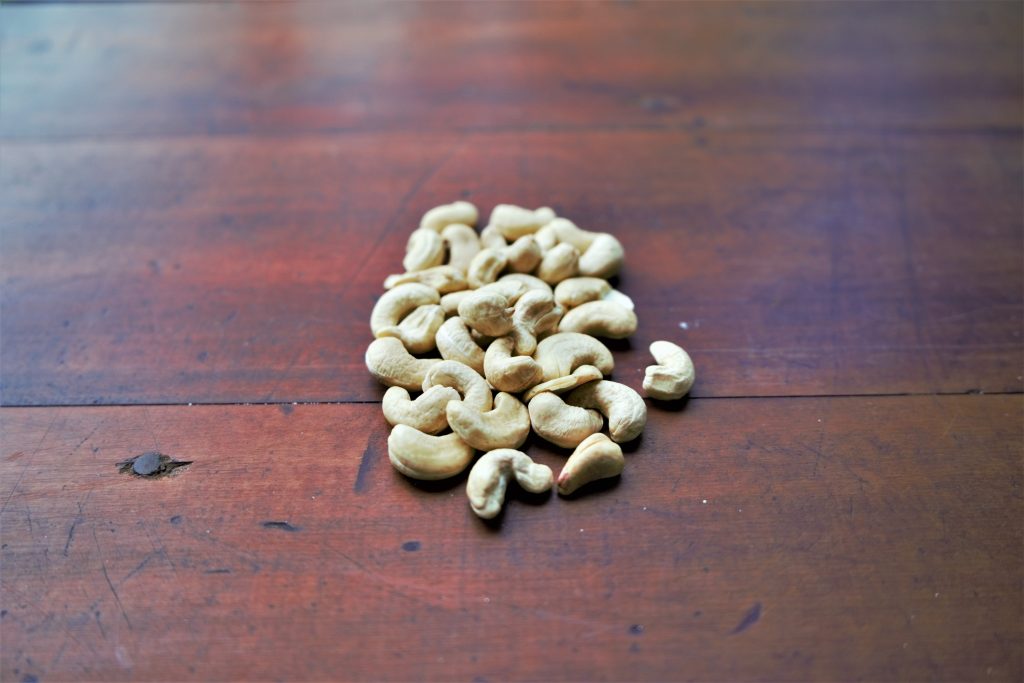
Cashew Milk
Price per litre: $6.75 (organic cashews)
Ease to make: Very Easy
Keeps for: 3-4 days
This milk doesn’t require any straining which makes it really easy to make but you need to make sure you blend it properly or you will end up with a grainy texture through your milk. Cashews are quite expensive in most parts of the world so while it’s a delicious option it can work out to be quite a bit more expensive than other milk substitutes.
Cashews grow commercially in a more diverse range of places than almonds and require slightly less water. This makes cashew milk a reasonably sustainable option if you live somewhere that produces cashews (like South America or Asia). But it means many countries import their cashews and using cashew milk as a milk substitute has more food miles than dairy or other alternative options grown nearby.
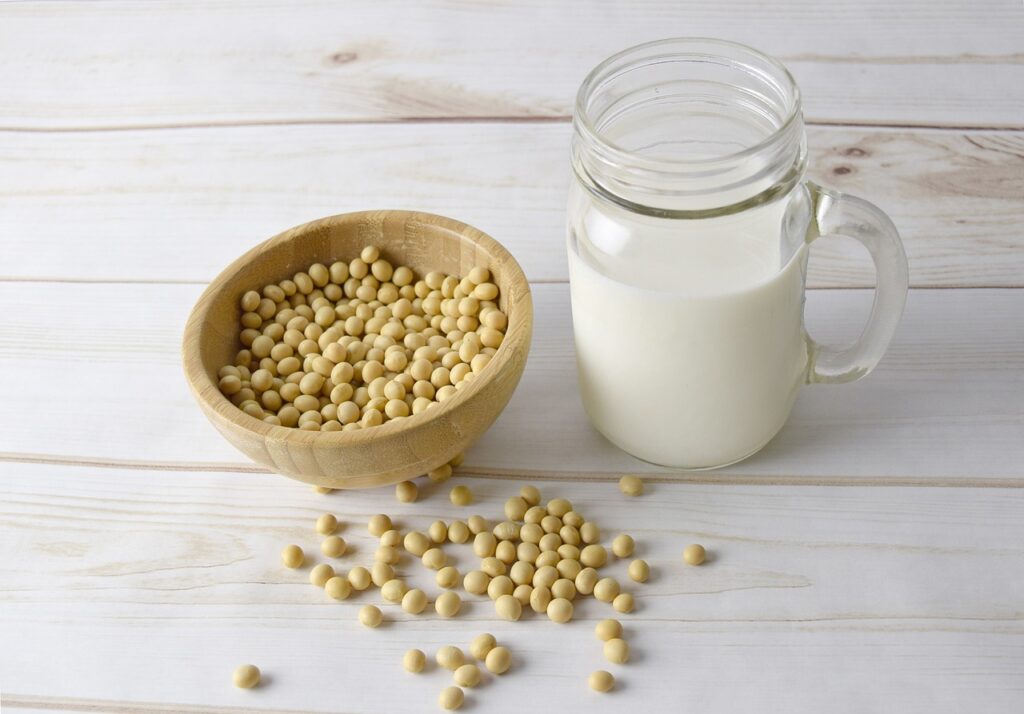
Soy Milk
This is the first type of milk alternative I ever tried and his been around since before other nut milks were mainstream. It’s fairly easy to make your own soy milk but sourcing the beans can be much more difficult depending on where you live.
In New Zealand it’s really hard to find soy beans, particularly at plastic-free bulk stores and soy beans aren’t grown commercially in New Zealand. Soybeans can be grown in a variety of places and there are sustainably grown options. So if you have access to soybeans this could be a good option otherwise you’re looking at a lot of food miles and potentially supporting damage caused by deforestation in order to soybeans.
Because of this I haven’t tried making my own soy milk but if you have let us know how it turned out in the comments!
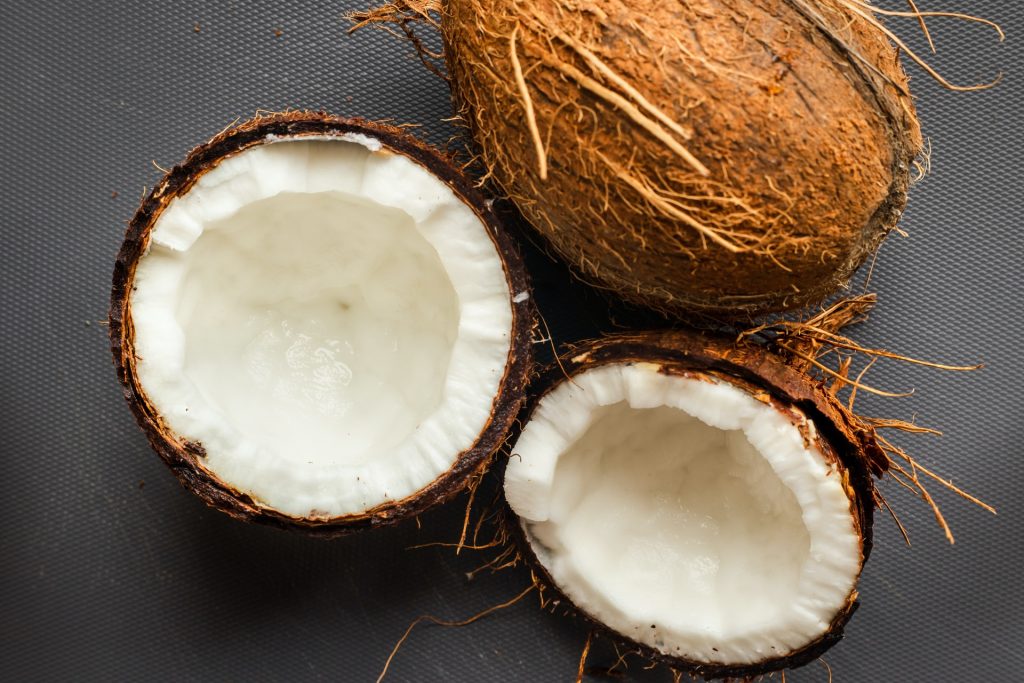
Coconut Milk
This is another option we haven’t attempted ourselves as it’s much harder to buy coconuts than to simply buy the ready made milk and the milk comes in recyclable cans.
The water consumption used for growing coconuts is better than most other alternative milk options but unless you live on a tropical island you’ll find that your coconut milk is imported. Buying organic coconut milk can help ensure a higher standard of sustainability of the milk produced but the food miles are a definite negative.
In terms of taste, coconut milk has quite a distinct flavour which can be off putting for some people. Most things it’s used in will carry the taste such as coffees, baking or cereal but this can also be a delicious addition.
Best Alternative Milk for Coffee
For me, almond milk was the best alternative milk for coffee but this will always be a matter of taste. We like to froth our own milk at home and the fat content in almond milk makes it a good option for this.
Best Alternative Milk for Your Budget
Oat milk is by far the cheapest milk alternative. Even organic oats cost just a few cents per litre of milk created. Although this is only true when you make the milk yourself. Buying oat milk pre-made is a similar price to other milk alternatives.
Best Alternative Milk for the Environment
This one entirely depends on where you live and where you’re sourcing your ingredients from. If something grows readily nearby then it is likely your most sustainable option. For many people this will be oat milk as oats can be grown most widely but many people have nut trees in their own garden or surrounding area so you might like to try with them!

